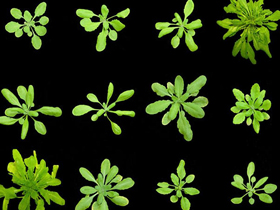Recombination means a new genotype (or hereditary structure) being produced by the genetic characters of the two genders combining. However, recombinations must not be confused with mutations. In mutation, in order for changes taking place in the individual's genotype to be effective, they must take place in the reproduction genes.
Recombination, on the other hand, is a constant process that gives rise to new combinations of genes in every offspring, as a result of natural sexual reproduction. Recombination results from the regrouping of genes from the mother and father during the formation of their reproductive cells. Before cell division, the fertilized egg always takes half its genetic material from the mother and half from the father, but recombination plays a definitive and influential role in the formation of variety. (See Variation.) Thus except in the case of identical twins, two offspring are never identical to one another, and neither are their genetic contents exactly the same as their parents'.
Some evolutionists interpret variation through recombination as an evolutionary factor. 199 However, this is not scientifically valid. Variation is a natural process arising from genetic mixing during reproduction. Yet there is no question of a new species emerging through recombination, or of new information being added beyond that already recorded in the genes.
Studies on recombination occupy a very important place in the understanding of genetic mechanisms. Recombination has guided scientists' production of the chromosome map, identification of genetic abnormalities, and in genetic transplants of one chromosome to another.
199. Prof. Dr. Yalçın Şahin, Genel Biyoloji, Bilim Teknik Yayınevi, Eskişehir, 1995, p .349.

